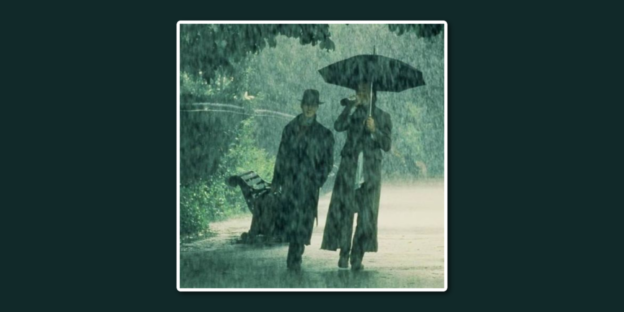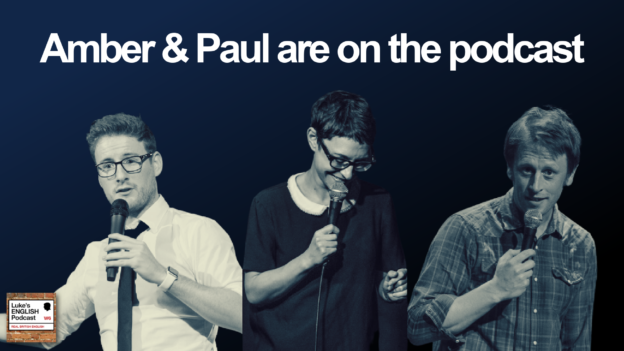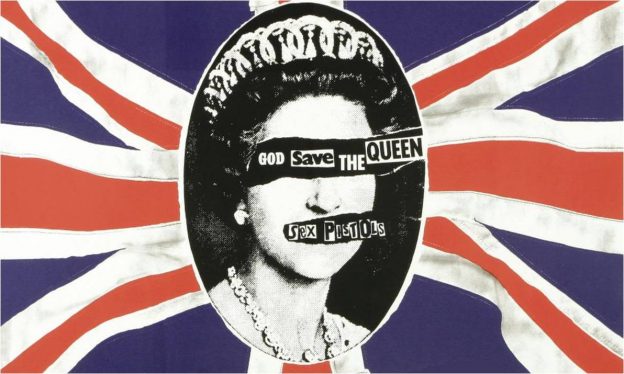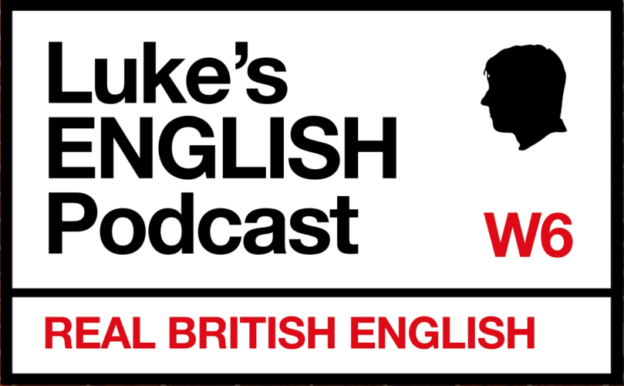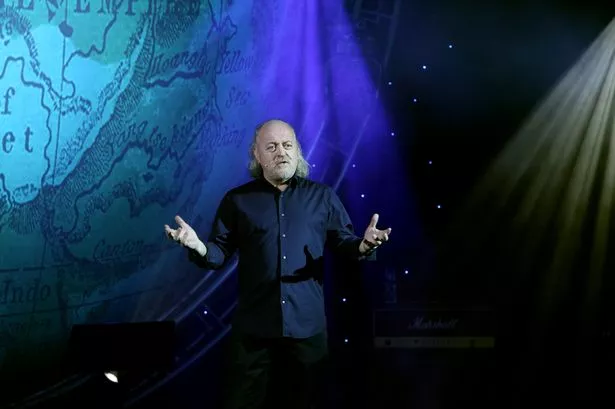Learn English from an anecdote told by Sir Paul McCartney. Let’s listen to Paul telling a sweet story about something funny that happened to him and George Harrison when they were teenagers, before they became world famous musicians in The Beatles. Let’s listen to his story , do some intensive listening practice and then I’ll help you understand everything. Also, let’s have a laugh with some funny Paul McCartney impressions. Video and notes available below.
![]() [DOWNLOAD]
[DOWNLOAD]
Pre-Jingle Vocabulary
This episdoe is called Paul McCartney’s Spider Story and if you keep listening you’ll hear what happens when a couple of Beatles meet a couple of spiders.
You can also do some intensive listening practice focusing on every single word, and then later there are some bits focusing on Paul McCartney’s voice – including a few fun Paul McCartney impressions.
But right here at the beginning, before the jingle even, I just want to give you a heads up about some bits of vocab that appear in the episode. I’ll tell you the vocab now and while you’re listening and hopefully enjoying the episode, just try to spot these words and phrases as they come up, and when you do spot them you can just go – oh, there’s that word, there’s that phrase.
- a bed and breakfast (a B&B) = a simple guesthouse where you pay for a bed for the night and breakfast in the morning, a bit like a basic hotel which is just someone’s home. (e.g. We hitch-hiked around Cornwall and stayed in a few little B&Bs along the way)
- to turn out (phrasal verb) = when you discover a fact or when something is later revealed to be true or to be the case ,turn out + infinitive (e.g. we got talking to this guy and made friends with him and it turned out that his mum owned a B&B up the road or I was standing in a shop and I overheard someone talking about recording music and a concert and it turned out to be Paul McCartney!)
- menace (noun) = something dangerous that can cause you harm (e.g. next door’s dog is a real menace to my chickens, or he has an air of menace about him, or there was a hint of menace in his voice)
- as blind as a bat = totally blind, e.g. I’m as blind as a bat without my glasses! (Bats are often thought to be blind, but in fact their eyes are as good as ours – but they use their ears more at night than their eyes)
- a nativity scene = a set of models or statues depicting the birth of the baby Jesus Christ, with Mary & Joseph often sitting over the baby Jesus. Every Christmas my school used to display a nativity scene in the school’s entrance. Sometimes people display nativity scenes in their homes or even outside the house if they’re particularly religious at Christmas.
- to bury the hatchet = to stop a long running argument and become friends again. E.g. I wish you two would just bury the hatchet so we can get the band back together. (bury the weapon you might use to fight with someone)
- to bury the hatchet in someone’s head = a joke! If you bury a knife, sword or hatchet in this case in someone’s head – it means you stick it deep in their head – to kill them. E.g. I’m ready to bury the hatchet – in your head! – Makes it sound like you’re ready to stop fighting, but actually you still want to kill the other person!
- showing off = behaving in a way to attract attention and show people how great you are, but in a way that’s annoying. E.g. Dave is really good at the guitar but he’s always showing off doing these ridiculous guitar solos. He just wants to impress everyone. or Stop showing off in front of all the guests!
OK – so, no information yet about the context that those words come up in, but I just wanted to give you a heads up about some bits of vocab that definitely do come up at various points during the episode. See if you can spot them all as they naturally come up. Now, on with the episode!
Introduction
What are we doing in this episode? Listen to an anecdote – a real one, told by none other than Paul McCartney.
This is a video I found on YouTube (see below). Listen to the story, and just work out what’s going on. I’ll give you a few questions to guide you. Then I’ll go through the recording again and explain it, clarify, highlight any features of language and generally help you to understand it as well as I do. So, this is a great chance to learn some English from a real anecdote – a personal little story, in this case told by Sir Paul McCartney.
I love The Beatles. I love listening to Paul talking about, well, anything really, and I love this particular video and this little anecdote.
It’s not a story about how he conquered the world in The Beatles, or how they played Shea Stadium or how they sold millions of records or whatever.
It’s just a sweet and funny little story about something that happened to him and his mate George Harrison when they went hitchhiking in Wales – before they were even famous or in The Beatles.
I think the video originally appears as an outtake from the George Harrison documentary “Living in the Material World”, which was directed by Martin Scorsese. Highly recommended.
He was just asked if he could tell a story about a good memory of George. Of all the things they must have been through together, this is the one he picked.
Who’s Paul McCartney? (as if you don’t know…)
He’s got to be one of the most successful musicians to have ever lived.
He was in The Beatles – you must have heard of them!
I don’t know if you like their music, but you can’t deny that they’re one of the most significant bands ever and also one of the most significant moments in cultural history. I have no doubt that their music and their story will forever be remembered, studied and considered ultimately to be like classical music.
But I don’t mean to build it up too much. For me, I’m a fan of the Beatles not just because of their place in cultural history, but because of the fascinating story of these apparently ordinary guys from Liverpool, their lives, their friendship and the amazing pool of creativity that seemed to open up between them once various factors were in place and the career of the Beatles happened.
Comprehension Questions
Watch the video of “Paul McCartney talking about his best times with George Harrison” (below)
Try to answer these questions. Listen to find out the answers.
- Why did they hitch hike to this place called Harloch in Wales?
- Where did they end up? Why did they spend their time there?
- Where did they stay?
- What did he realise later on?
- Who did they hang out with? What did they do?
- What was their reaction to the spiders in their room? How did they deal with the spiders?
- Who were Jimmy & Jemimah?
Paul McCartney talking about his best times with George Harrison – “The Menace! The Spiders!”
The second anecdote – Buddy Holly and John Lennon’s poor eyesight
What’s the funny thing Paul says about John’s eyesight?
Answer: John Lennon famously wore glasses because he was very short sighted. He used to take the glasses off if girls were around. Later, Buddy Holly became a famous pop/rock star and suddenly it was quite cool to wear horn-rimmed glasses. Anyway, one night after writing songs at Paul’s house one dark evening at Christmas time, John walked past a house and thought he saw some neighbours still sitting outside in the freezing cold playing cards. Paul later realised that it was just a nativity scene, and John was so blind that he’d thought the statues of Mary & Joseph bending over the baby Jesus were a couple of people playing cards outside their house.
Rob Brydon & Steve Coogan do Beatle Impressions in The Trip to Spain
Rob and Steve do their Paul McCartney impressions. Rob talks about how Paul’s voice has been affected by the fact that his mouth has lost some mobility now that he’s quite old. Steve disagrees and says that he thought Paul was quite articulate. They then start doing John Lennon impressions.
Peter Serafinowicz Show – The Beatles go for a poo
A parody of the Beatles in their Let It Be period, when there was lots of friction in the band and they couldn’t agree on the musical direction for the group. British comedian Peter Serafinowicz does impressions of all the Beatles.







